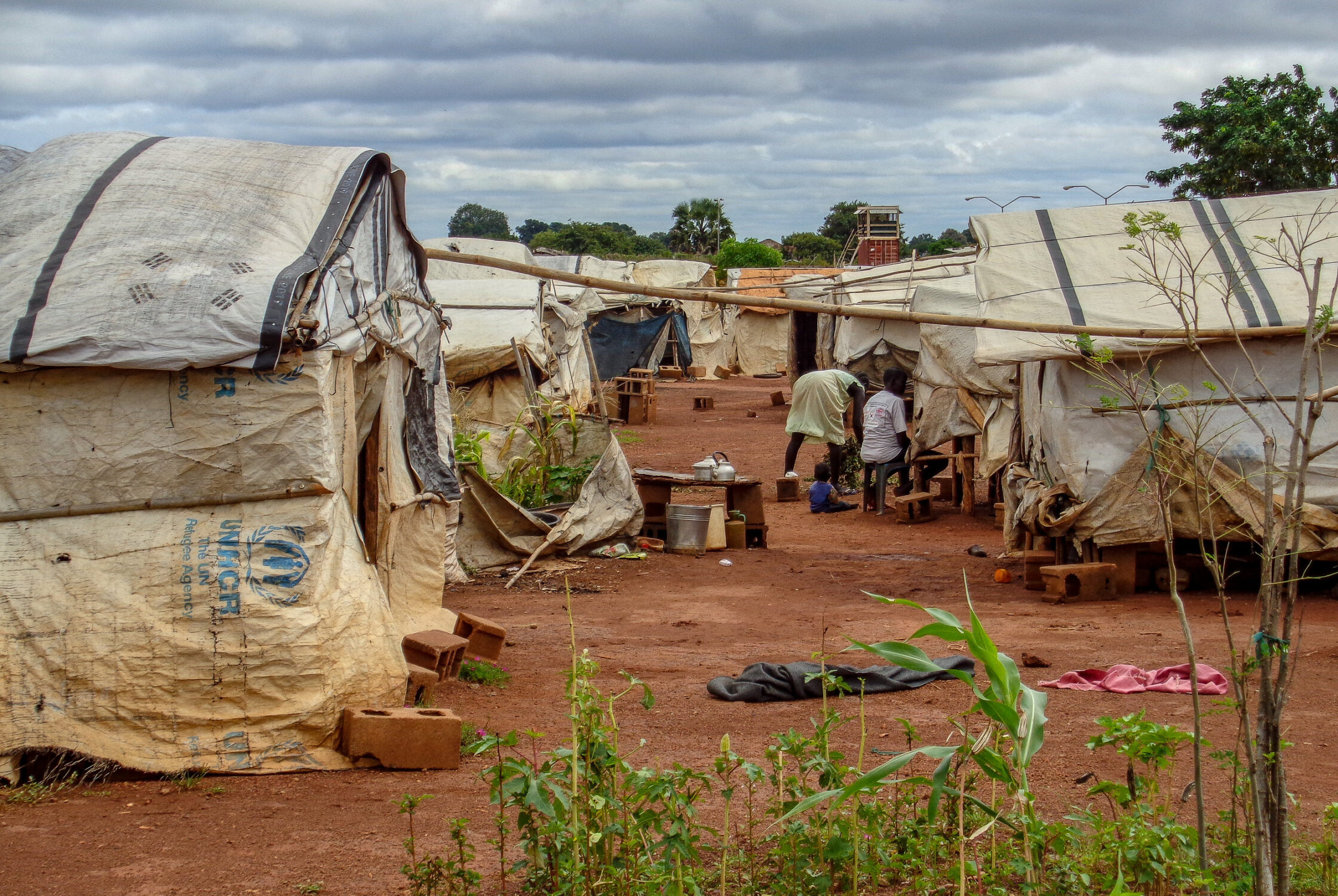No Home Without Peace for South Sudan’s Displaced

“We only need peace,” Regina Emilio, a 59-year-old grandmother, tells me as I stand outside her shelter in Wau, South Sudan. She is one of more than four million South Sudanese forced to flee their homes since civil war broke out in December 2013, just two years after the newest country in the world gained independence.
Regina is hopeful about the latest peace agreement signed between the country’s elites. But she is also practical. No less than a dozen past peace attempts have failed. She lost her husband when violence reached her village in the remote western part of South Sudan in June 2016. She was forced to leave him lying where he had been shot and to flee with her children to the nearest UN peacekeeping base to seek refuge.

Today, Regina is one of some 200,000 people living in such Protection of Civilian (PoC) sites. These unique and unprecedented sites are essentially displacement camps set up within or directly next to UN peacekeeping bases. They are surrounded by walls and razor wire, patrolled by UN peacekeepers, and cut off from access for government soldiers. The PoC sites have been described as the UN’s best and worst ideas in South Sudan. When fighting first broke out, they undoubtedly saved tens of thousands of lives by providing a safe area between fleeing civilians and the forces targeting them. However, the sites were originally meant only to stay open just a few days. More than five years later, they remain open, presenting unique challenges to their inhabitants and threatening to foster a culture of dependency.
Regina and other displaced persons in the camps described to me challenges of reduced rations, rampant crime, and difficulty obtaining sufficient firewood and charcoal for cooking. Leaving the sites to gather wood is dangerous, and women are often targeted and subject to sexual violence. UN peacekeepers organize occasional protected treks to gather firewood, but displaced persons continue to feel the need to venture out more often. Regina feels there is not enough attention given to the more vulnerable elderly and widows among the displaced. She also points to the lack of livelihood opportunities or education. “The children are being spoiled,” she tells me, “they are not studying, just hanging around and getting into trouble.”
As the peace agreement muddles forward, talk of closing the PoC sites gains momentum. The government sees the sites as refuges for rebels and opposition sympathizers. UN peacekeepers and humanitarian agencies see them as immense drains on resources and the ability to protect and provide services to the much larger displaced community outside of the sites. But, despite the ongoing challenges within the PoC sites, in speaking with the displaced persons in those sites, it is apparent that the time for closure has not yet come.
Displaced persons like Regina would like nothing more than to return to their homes, but they still do not feel safe to do so.
Displaced persons like Regina would like nothing more than to return to their homes, but they still do not feel safe to do so. Much of the population of the PoC sites are civilians from ethnic groups or tribes affiliated with groups in opposition to the government. Ethnic targeting has been an all too real horror of the civil war, and people are understandably wary of returning to areas now controlled by the very government soldiers who forced them to flee two years ago. Nor has the fighting ended. Not far outside of Wau, the South Sudanese army and opposition fighters continue to clash despite the broader moves toward peace.
There is also the practical matter of where to return. “If I was told to go home now, I could not,” Regina tells me, “My home has collapsed and been looted.”
If I was told to go home now, I could not. My home has collapsed and been looted.
For now, the PoC sites remain essential. They provide a sense of security and access to basic services. Any closure of the sites will have to be done in a transparent manner, ensuring that those still seeking refuge within them feel safe enough to return voluntarily. “We are waiting for peace,” says Regina. “We are all praying hard that we can go home. But if we go home, we need to know that we can stay.”
Refugees International Senior Advocate for Human Rights Dan Sullivan travelled to South Sudan in October of 2018 to examine the needs of the country’s internally displaced. A report on the issue is forthcoming.